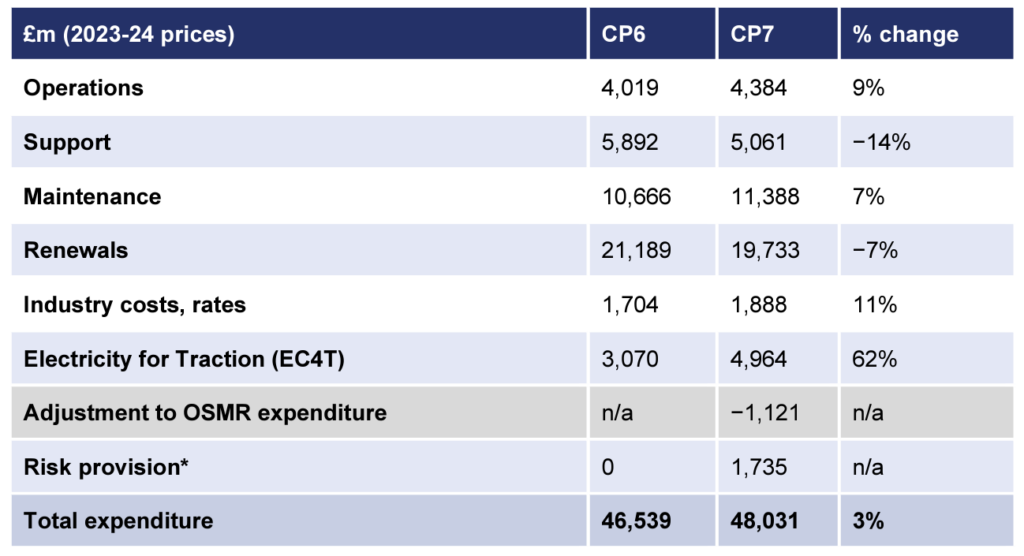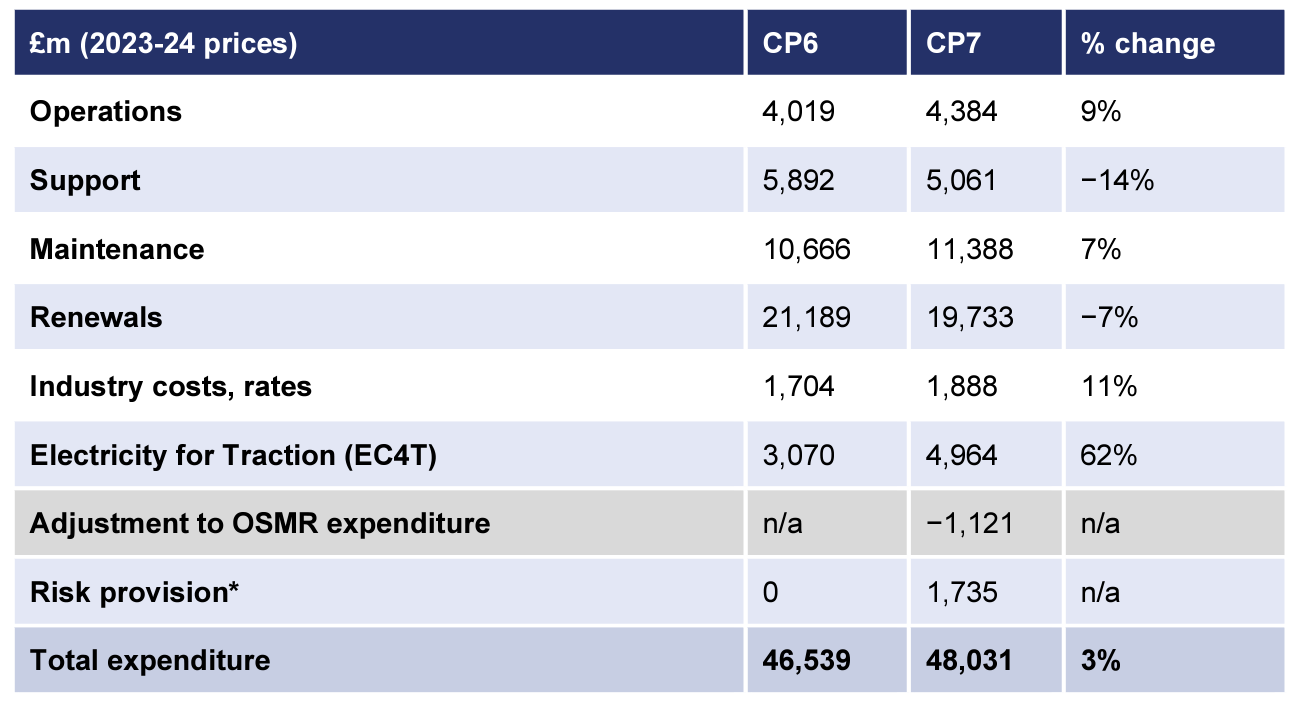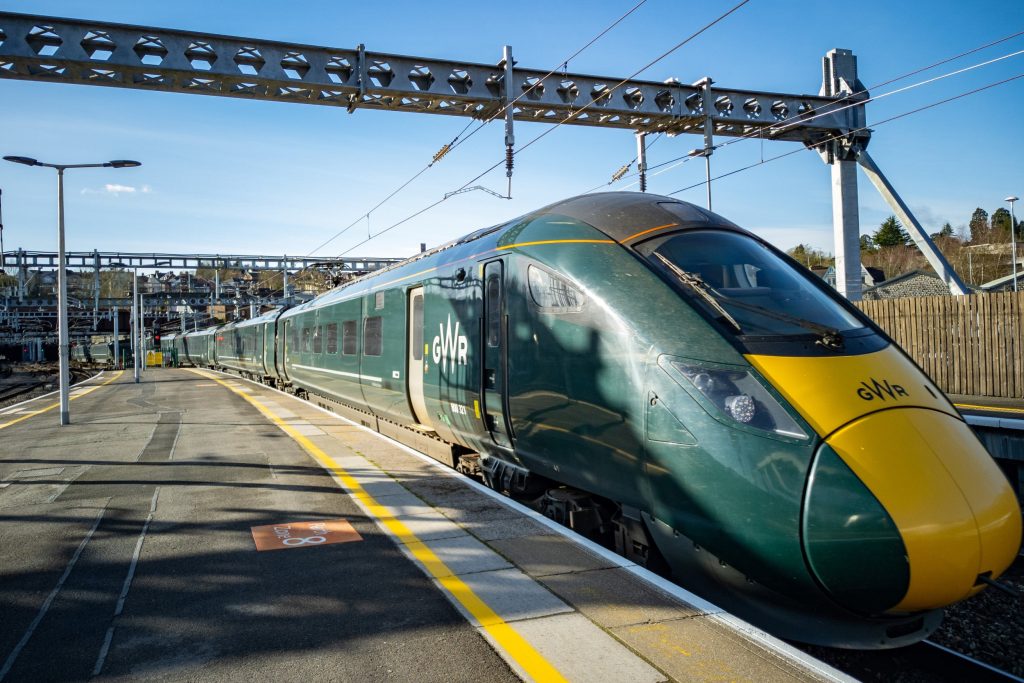Regulator accepts Network Rail’s £43.1bn investment plan with focus on resilience and freight

This post was originally published on this site
The Office of Rail and Road (ORR) has accepted Network Rail’s £43.1bn plan for Control Period 7 (CP7), April 2024-March 2029, which will focus on building network resilience and increasing rail freight.
The rail operator’s £4.6bn plan for Scotland’s railways has also been approved.
The announcement was made with the official release of ORR’s Period Review 2023 (PR23) Final Determination which it consulted on in draft form from June to August this year.
ORR’s Final Determination is used by the organisation to hold Network Rail to account and ensure value for money for customers and funders of the railway. In June 2021, ORR outlined that it wanted to see Network Rail focus on four aspects in CP7. These were safety, performance, asset sustainability and efficiency.
Network Rail outlined its CP7 plans in May, to which the ORR presented several challenges before approving.
One of ORR’s challenges included a desire for Network Rail to increase spending on renewing core assets, such as track, structures and earthworks. The rail operator has agreed to do this, apportioning approximately £600M more towards coreasset renewals across England, Wales and Scotland. Network Rail and ORR are in agreement this will bolster asset sustainability, safety and performance.
ORR has further stated it considers Network Rail has a suitable framework for CP7 to understand and manage the change in risk from carrying out fewer renewals and a move to greater maintenance of existing assets, which the rail infrastructure body has outlined as a focus for CP7.
This is underscored by a commitment to double investment in tackling climate change to make the railway network more resilient and sustainable. This will comprise investment in earthworks and drainage renewals and improvements to Network Rail’s capabilities with the creation of dedicated earthworks and drainage teams, operational weather expertise, climate change adaptation strategy investment and continued investment in the Weather Risk Taskforce.
Network Rail has stated it will spend the next five months continuing to work on its detailed plans for operating maintaining and renewing the network for CP7, which it plans to publish at the end of March next year.
ORR has further set challenging targets for what Network Rail will be expected to deliver for its freight operators by reducing the number of freight cancellations from current levels.
For the first time, the regulator has set rail freight growth targets across Great Britain. Network Rail will be expected to implement strategies to create growth of 7.5% in rail freight for England and Wales and 8.7% for Scotland. ORR stated that it supports Network Rail’s plans to upgrade its structures to better support freight and work with the industry to deliver the conditions for growth.
As the railways in the UK have seen a number of unexpected circumstances through CP6 (2019 to 2024), namely Covid-19, industrial action, inflation and increased exposure to climate change effects, ORR recommended Network Rail increase its risk fund to £1.5bn for CP7.
This is broadly consistent with Network Rail’s expenditure on managing risks during CP6, but lower than the risk funding ORR suggested in its Performance Review 18 final determination as Network Rail used some of that funding on other areas like performance improvement schemes.
Network Rail has agreed to increase the fund to £1.5bn to react to increased importance in reasonable risk funding, effective cost control and risk management during CP7.
As part of PR23, ORR carefully reviewed Network Rail’s efficiency targets for the next five years and “drawing on a range of evidence” found them to be “stretched but achievable”. These targets will see Network Rail deliver efficiencies of at least £3.2bn in England and Wales and £400M in Scotland.

Comparison of Network Rail’s planned expenditure for CP6 and CP7 (Source: ORR)
ORR economics, finance and markets director Will Godfrey said: “I’m pleased to see that Network Rail has responded well to our challenges to its initial plans and the result is more robust and customer focussed plans which we believe will deliver better outcomes for passengers and freight.
“The plans are challenging but achievable. Our five-year funding and regulatory settlement provides stability and a platform for the industry to plan and invest. This is important not just for Network Rail, but also for passenger and freight operators and the supply chain.
“Network Rail must now set out how it will deliver on our final determination.”
Network Rail chief executive Andrew Haines said: “The rail sector enjoys an almost unique level of funding certainty and that is a privilege that comes with serious responsibilities.
“More than £43bn will be spent over the next five years to deliver a safer and better railway for passengers and freight customers. Today’s announcement gives clarity and certainty for the railway and our supply chain partners and will now enable us to continue building on our detailed delivery plans.
“The UK and Scottish governments’ funding commitment and today’s news is a significant vote of confidence in the industry’s future. The impact of inflation, tight public finances and the need to invest more to manage the impact of more frequent extreme weather on the infrastructure does mean that our funding will need to go further than ever before.
“Throughout CP7 we are committing to delivering extensive investments across the length and breadth of the network. In addition to improvements to safety, we’ll work to boost train performance, usher in new technologies, invest significantly more funds to tackle climate change as well as make £3.6bn of efficiency savings.”
ORR’s “key messages” in its PR23 final determination
- Improving train performance for passengers and freight must continue to be a top priority. Network Rail will need to work with operators to ensure that cancellations are reduced and that punctuality is maintained, even as passenger numbers increase
- We welcome Network Rail’s response to our draft determination that it will focus on core assets and deliver approximately £540 million of additional core renewals during CP7
- Network Rail is expected to reduce carbon emissions by more than 20% over CP7 and there is scope to go further. The railway in England & Wales is also expected to conserve and enhance biodiversity, and we have set a target for this to improve by 4.2%
- Network Rail will conduct fewer renewals, with more refurbishment, life-extending repairs and maintenance in comparison to CP6
- Network Rail is required to deliver at least £3.2 billion of efficiencies in CP7
- Network Rail will hold £1.5 billion of risk funding from the start of CP7
Like what you’ve read? To receive New Civil Engineer’s daily and weekly newsletters click here.





Responses